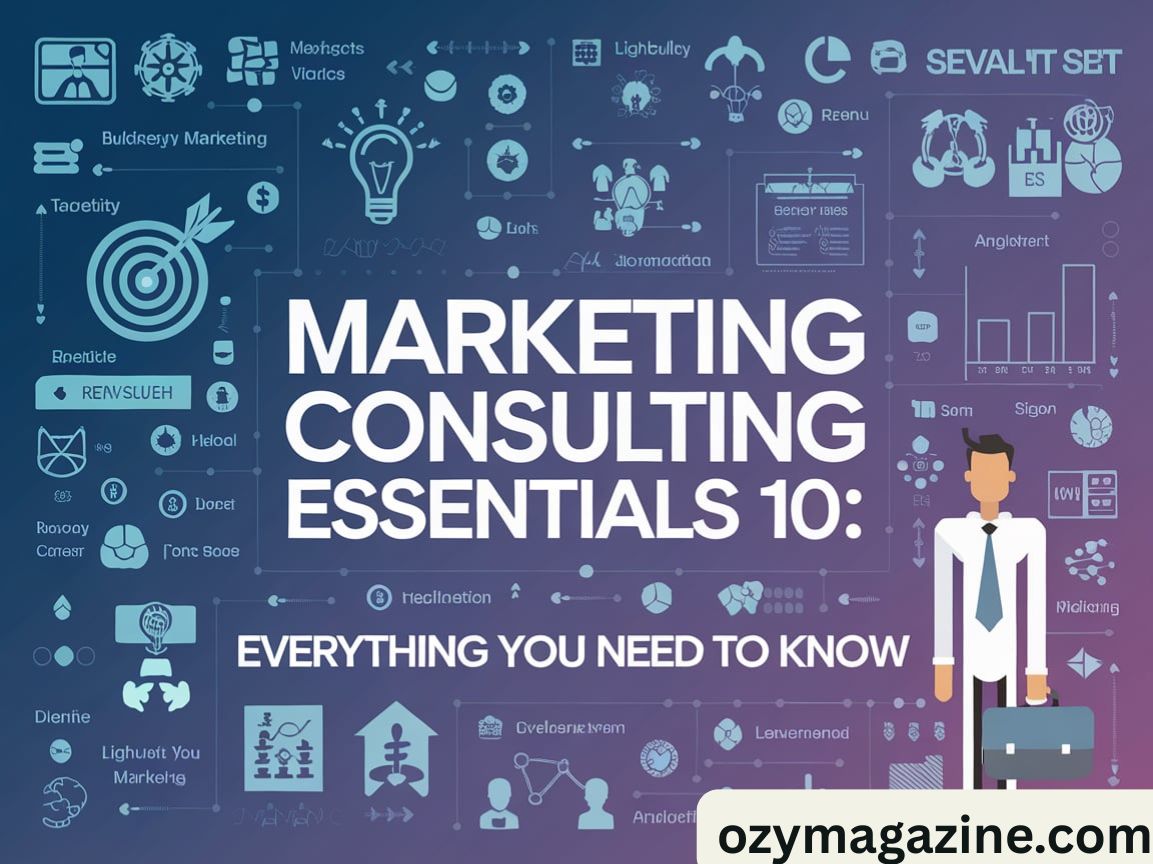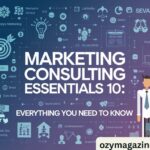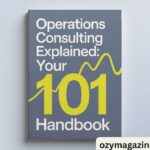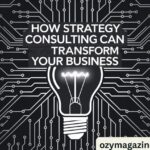Marketing Consulting Essentials means the basic knowledge and skills needed in marketing consulting. It covers ideas, tools, and steps that help businesses grow. It is the foundation for becoming a strong marketing consultant.
Every business wants growth. Every business wants new customers. Marketing Consulting Essentials shows the way to reach those goals.
This topic explains skills like analysis, strategy, and communication. It shows why consultants are important for success. It helps both new and experienced consultants learn and improve.
Understanding the Role of a Marketing Consultant

A marketing consultant is a professional who helps businesses design, plan, and execute strategies that improve visibility, engagement, and sales. Unlike in-house employees, consultants bring specialized knowledge and a broader perspective because they work with different industries and companies. In the U.S., businesses often turn to marketing consultants to gain an advantage in competitive markets like retail, technology, healthcare, and real estate. Their job goes beyond giving advice; they become partners in identifying opportunities and removing roadblocks to growth.
Definition and Scope
The definition of a marketing consultant is simple yet broad. A marketing consultant is someone who provides expert guidance to companies that need help developing and implementing marketing strategies. The scope, however, is much wider. It includes digital marketing campaigns, social media planning, branding, traditional advertising, content marketing, and even public relations. In the United States, where consumer preferences change rapidly, consultants must stay ahead of trends like influencer marketing, mobile-first strategies, and e-commerce optimization. This wide scope makes the profession dynamic and rewarding.
Why Businesses Hire Marketing Consultants
Businesses in the U.S. hire marketing consultants for many reasons. Startups may lack an internal marketing department and need help building their presence from scratch. Mid-sized businesses often need consultants when they are scaling operations and want to enter new markets. Large corporations, despite having marketing teams, sometimes bring in consultants for specialized projects or to bring an outsider’s perspective. In many cases, hiring a consultant is more cost-effective than maintaining a large in-house team. A well-known example is when American startups in Silicon Valley bring consultants to develop digital launch campaigns before their official product release. Consultants help save time, reduce risks, and deliver measurable results.
Essential Skills for Marketing Consultants
For a marketing consultant to succeed, they must possess a unique set of skills that combine creativity with analytical thinking. It is not enough to know how to advertise; consultants must also understand the science behind consumer behavior and the business goals of their clients. These skills allow them to build strategies that not only attract attention but also drive long-term results.
Analytical Skills
Analytical skills are the backbone of marketing consulting. Consultants must study data to understand trends, customer behavior, and competitor performance. Tools like Google Analytics, SEMrush, and HubSpot are widely used in the U.S. to collect and interpret marketing data. For example, if an e-commerce store notices a high cart abandonment rate, a consultant will analyze the numbers, identify patterns, and suggest changes such as improved checkout systems or remarketing campaigns. Without strong analytical skills, consultants would be working blindly, making guesses instead of providing evidence-based recommendations.
Communication Skills
Equally important are communication skills. Consultants often act as a bridge between business owners, employees, and customers. They must explain complex strategies in a simple way so that everyone understands. In the American market, where collaboration and team-based projects are common, effective communication is a key to success. A consultant may need to present findings to a board of directors one day and then train junior marketing staff the next. Both tasks require the ability to listen carefully, speak clearly, and build trust.
Business Acumen
Business acumen refers to the consultant’s ability to understand the overall business environment. A consultant must know how marketing decisions impact sales, revenue, and profitability. For example, recommending an expensive campaign without considering the company’s budget could create more problems than solutions. U.S. businesses value consultants who understand financial metrics, industry regulations, and consumer psychology. By combining marketing expertise with business knowledge, consultants create strategies that are both creative and practical.
Key Responsibilities of a Marketing Consultant
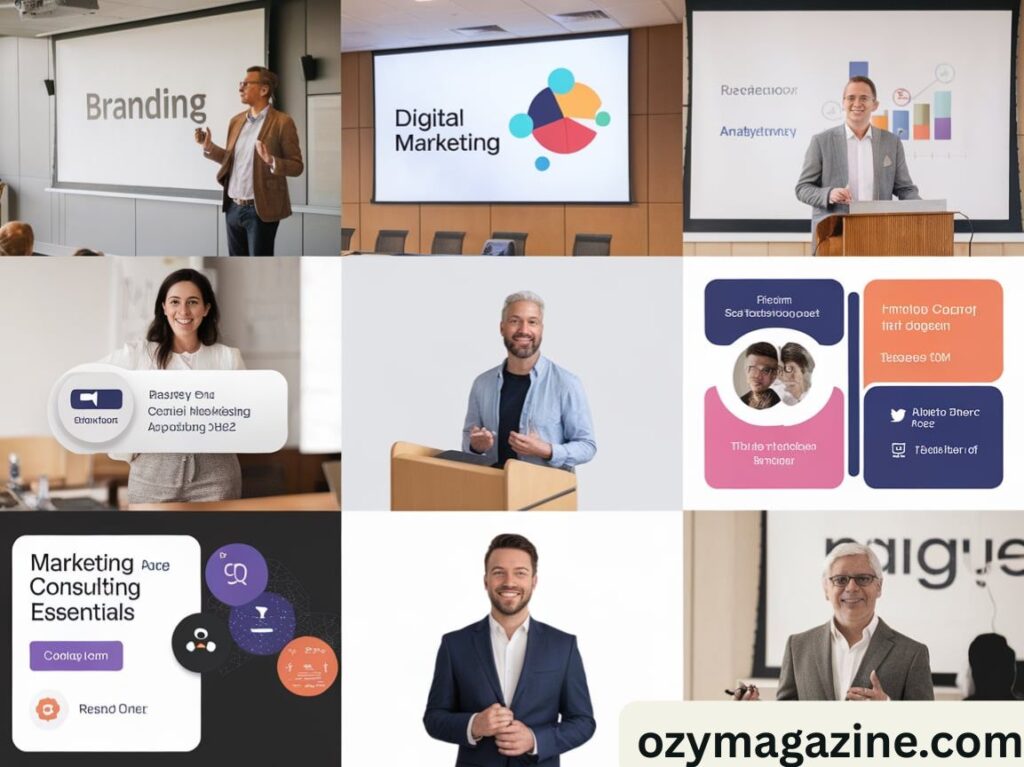
The responsibilities of a marketing consultant are diverse and often depend on the type of client. However, there are common responsibilities that most consultants share regardless of industry or company size.
Data Analysis and Reporting
One of the primary responsibilities is data analysis and reporting. Consultants collect data from campaigns, websites, and social media to measure success and identify weaknesses. For instance, a consultant might analyze Facebook ad results to determine which audience segment is most engaged. In the U.S., where businesses rely heavily on performance metrics, presenting clear and detailed reports is crucial. Reports help clients understand where their money is going and whether campaigns are producing a return on investment.
Strategy Development
Another major responsibility is strategy development. Consultants create customized plans that fit the specific needs of each client. For example, a restaurant in New York may need a local SEO strategy to attract nearby customers, while a software company in California might need a national campaign targeting B2B clients. Developing these strategies requires research, creativity, and a deep understanding of the American consumer landscape. Effective strategies often combine multiple approaches such as social media, email marketing, paid advertising, and content creation.
Client Management
Beyond analysis and planning, client management is a critical responsibility. Consultants must build strong relationships with their clients by offering transparency, accountability, and ongoing support. In practice, this means keeping clients updated, addressing their concerns quickly, and showing measurable progress. Case studies in the U.S. show that businesses that work closely with consultants often report higher satisfaction and long-term partnerships compared to businesses that treat consultants as short-term vendors.
Steps to Becoming a Successful Marketing Consultant
The path to becoming a successful marketing consultant involves education, practice, and networking. Since marketing consulting in the U.S. is highly competitive, those who want to enter the field must build a strong foundation.
Education and Certifications
Many consultants begin with a degree in marketing, business, or communications. While formal education provides a strong base, certifications add extra credibility. In the United States, certifications from Google Ads, HubSpot, the American Marketing Association, and Hootsuite are highly respected. These certifications demonstrate technical expertise and show clients that the consultant is committed to continuous learning.
Building a Portfolio
A consultant’s portfolio is one of their most powerful tools. It is proof of what they can deliver. Portfolios often include case studies, campaign results, analytics reports, and client testimonials. For example, a portfolio might show how a consultant increased website traffic for a local business by 200% through SEO strategies. In the U.S., clients place high value on real results, so having a strong portfolio is often more persuasive than having years of experience.
Finding Clients
Finding clients can be challenging at first, but with the right approach, it becomes easier over time. In the United States, many consultants start by networking at business events, building a presence on LinkedIn, or joining freelance platforms. Some consultants attract clients by writing blogs, giving webinars, or publishing thought-leadership content. Establishing credibility in the U.S. market often depends on building visibility and trust, which is why consultants need to market themselves just as strongly as they market their clients’ businesses.
Read Also : Operations Consulting Explained: Your 101 Handbook
The Growing Demand for Marketing Consultants in the USA
The demand for marketing consultants in the United States has risen as businesses adapt to a digital-first environment. Companies are constantly seeking fresh ideas to stay competitive, and consultants provide an outsider’s perspective that identifies gaps and opportunities. Their expertise allows businesses to adjust quickly without the need for full-time staff.
In today’s economy, small businesses and startups find consultants especially valuable. They bring cost-effective strategies and flexible solutions that align with limited budgets. Consultants can also introduce new tools and technologies, giving smaller firms access to professional marketing knowledge that rivals larger corporations. This demand continues to expand as industries become more customer-focused and data-driven.
How Marketing Consultants Drive Business Growth
Marketing consultants play a central role in helping businesses expand by targeting the right audiences and creating measurable campaigns. Their ability to analyze customer behavior ensures that companies spend resources wisely. In the U.S., where competition is fierce, consultants provide strategies that help businesses gain a larger market share.
Growth is not just about more sales; it also includes stronger branding and customer loyalty. Consultants help businesses develop long-term plans that balance short-term wins with sustainable success. By crafting tailored campaigns and tracking results, consultants ensure that every marketing initiative contributes to both immediate revenue and future stability.
The Digital Advantage of Marketing Consulting
One of the biggest benefits consultants offer today is digital marketing expertise. They understand the latest trends in social media, SEO, and paid advertising, which are crucial for the U.S. audience. By applying digital tools effectively, consultants help businesses stand out in crowded online markets.
Digital marketing strategies can be highly targeted, reaching customers by age, interests, or location. This precision makes campaigns more cost-efficient and impactful. Consultants guide businesses on how to blend organic strategies with paid campaigns, creating strong online visibility. Their digital expertise ensures businesses can compete in a marketplace where online presence defines reputation.
Why Trust and Communication Matter in Consulting
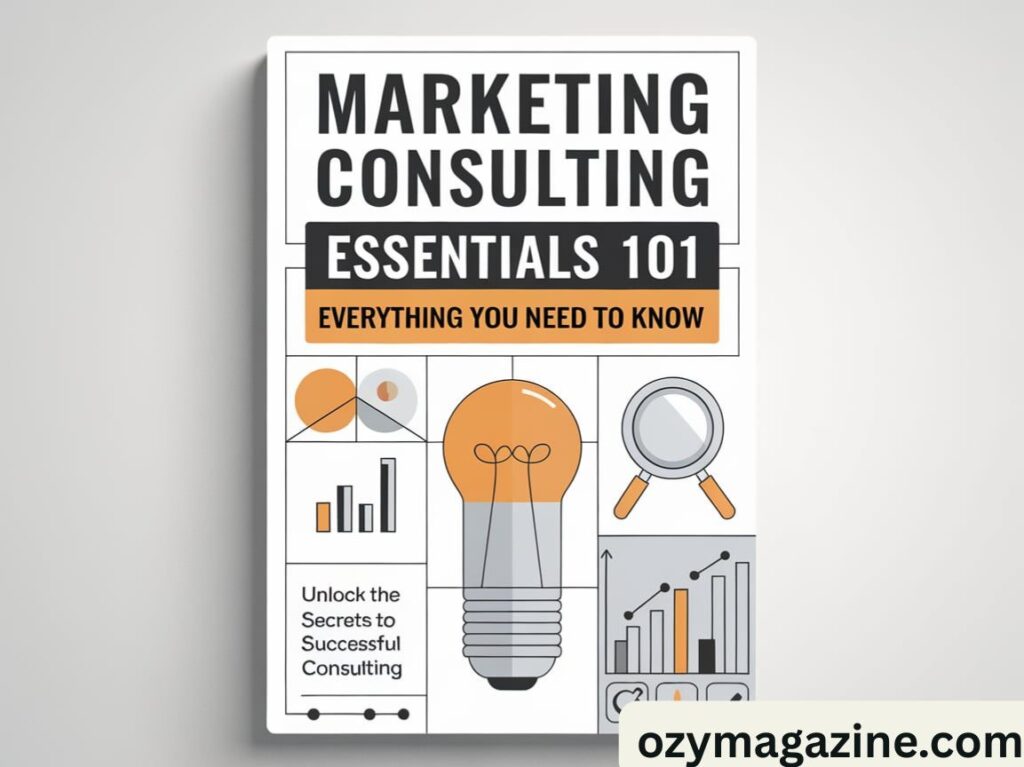
Successful consulting relationships are built on trust and open communication. U.S. businesses expect transparency, meaning consultants must explain strategies, results, and challenges clearly. When clients trust the consultant, they are more willing to invest in new ideas and long-term partnerships.
Communication also ensures that strategies align with business goals. Consultants often collaborate with teams from different departments, so the ability to simplify complex ideas is essential. Strong communication builds confidence and reduces misunderstandings, creating smoother projects. In the American market, where time is money, clear communication saves resources and strengthens client satisfaction.
The Future of Marketing Consulting in America
The future of marketing consulting looks bright as technology continues to evolve. Artificial intelligence, automation, and advanced analytics are reshaping how businesses approach marketing. Consultants who adopt these tools will remain highly valuable to U.S. companies eager to innovate.
At the same time, human expertise remains essential. While technology can process data, consultants interpret results and provide creative solutions that machines cannot. As American businesses adapt to shifting consumer expectations, consultants will continue to act as trusted advisors, guiding strategies that balance technology with a human touch. This balance defines the future of the profession.
Conclusion
Marketing consulting has become one of the most valuable services for businesses in the United States. By combining analytical thinking, communication skills, and business knowledge, marketing consultants help organizations achieve sustainable growth. They analyze data, create strategies, and build strong client relationships, ensuring that every marketing dollar is well spent.
For those aspiring to enter the field, education, certifications, portfolios, and client acquisition strategies form the foundation of success. Marketing consultants are not only experts in branding and advertising but also trusted advisors who shape the future of businesses. With the demand for innovative and data-driven marketing continuing to grow in the U.S., the role of marketing consultants will remain central to helping businesses adapt and thrive.
